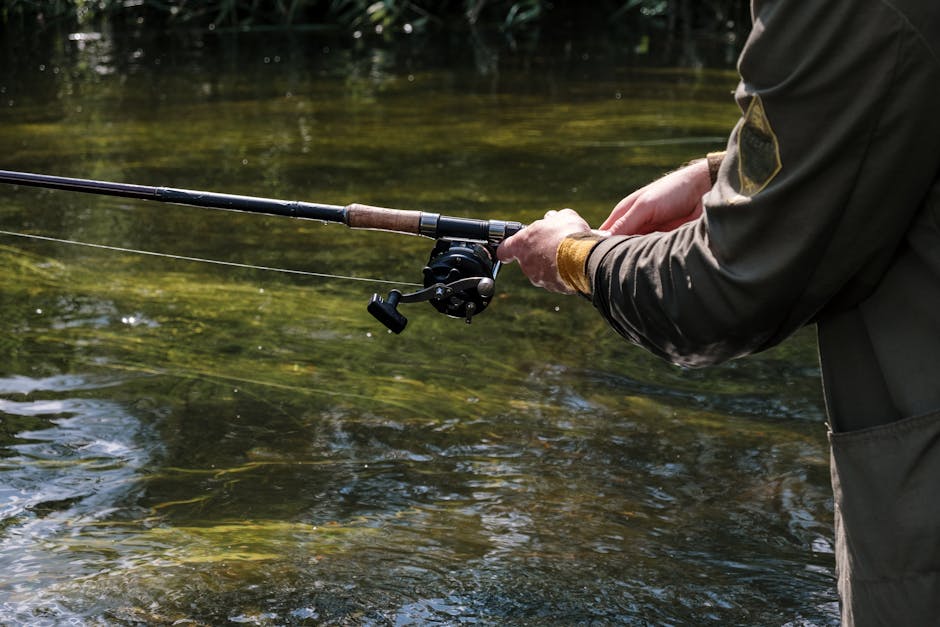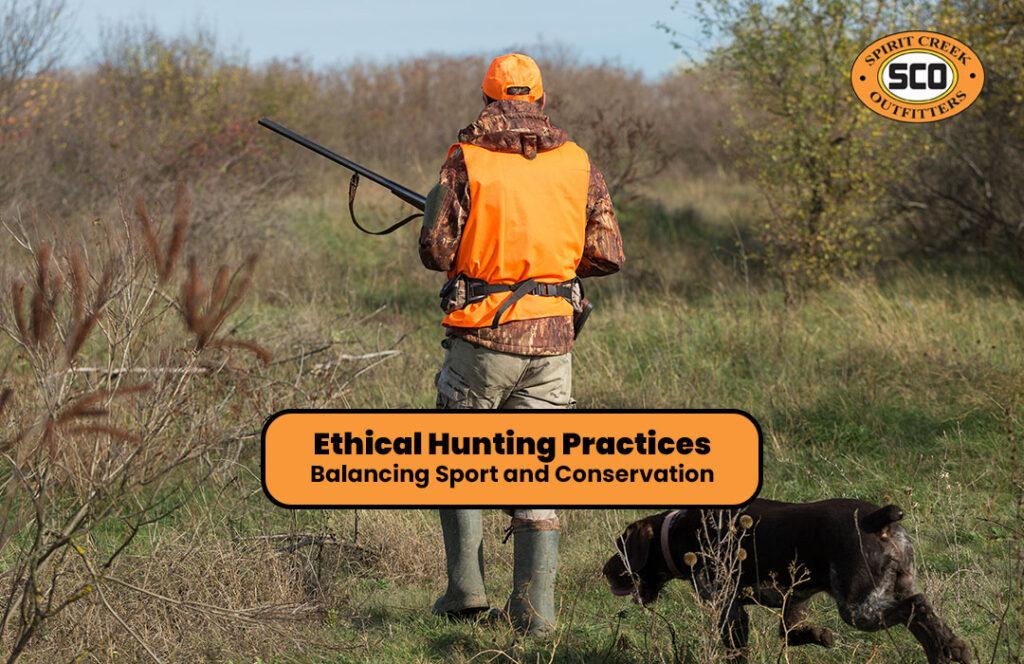Hunting is considered ethical when it respects the principles of fair chase and conservation. This means that hunters should strive for quick and humane kills and avoid causing unnecessary suffering to the animals. It’s essential to have a deep understanding of the ecosystem and the specific species being hunted. It also involves following all local laws and regulations, obtaining the necessary permits, and respecting the land and its resources. Ethical hunting acknowledges the importance of sustainable and responsible practices for the long-term well-being of wildlife populations and their habitats.

The role of hunting in conservation
Hunting can play a significant role in conservation by controlling animal populations and managing ecosystems. Overpopulation of certain species can lead to negative effects on the environment, such as habitat destruction and threats to other wildlife. Through regulated hunting, conservationists can maintain balanced and healthy wildlife populations, which in turn helps preserve the natural balance of ecosystems. Additionally, hunting permits and fees often contribute to conservation efforts, funding initiatives such as habitat restoration and wildlife protection programs.
Balancing sport and wildlife preservation
Hunting for sport can be a thrilling experience, but it’s crucial to ensure that the thrill doesn’t come at the cost of wildlife preservation. By following ethical hunting practices, we can maintain a balance between the enjoyment of the sport and the conservation of our precious wildlife. It’s important to be mindful of the impact our actions have on the environment to preserve the beauty and diversity of nature for the generations to come
Regulations and guidelines for ethical hunting
To ensure ethical hunting, it’s essential to follow regulations and guidelines set by wildlife management authorities. These regulations may include specific hunting seasons for different animals, bag limits, and even restrictions on certain hunting methods. Additionally, guidelines for ethical hunting often emphasize the importance of fair chase and the humane treatment of animals. Following these rules and guidelines is important for keeping a good balance between hunting as a sport and the conservation of wildlife
The impact of unethical hunting practices
Unethical hunting practices can have a detrimental effect on wildlife populations and the balance of ecosystems. Overhunting and using cruel methods can lead to the decline of certain species and threaten the delicate equilibrium of nature. It’s important to recognize the impact of unethical hunting and the necessity of preserving the natural world.
Importance of responsible hunting behavior
Responsible hunting behavior is crucial for maintaining the balance of the ecosystem. It ensures that animal populations stay healthy and sustainable. By following ethical hunting practices, we can ensure the preservation of natural habitats and the diverse species they support for the benefit of future generations. Responsible hunting behavior involves respecting laws and regulations, preserving the environment, and making humane and ethical decisions while hunting.
Ethical hunting equipment and methods
Using appropriate hunting gear and ethical hunting methods is crucial to ensure the practice of hunting aligns with conservation efforts. It is important to prioritize the use of non-toxic ammunition to prevent lead contamination in the environment. Additionally, hunters should opt for fair-chase hunting techniques, which involve giving the animals a fair chance to escape and ensuring a quick, humane kill. Adhering to these practices promotes responsible and sustainable hunting while contributing to wildlife conservation.
Ethics in trophy hunting
Trophy hunting has raised ethical concerns due to the focus on obtaining animal parts as trophies. Critics argue that it may not align with conservation efforts and can lead to unsustainable population declines. In some cases, it can also involve the killing of endangered species. Additionally, the practice of “canned hunting,” where animals are confined in a limited area, raises further ethical questions regarding fair chase and the welfare of the animals involved.
Promoting sustainable hunting practices
Sustainable hunting practices, like ethical hunting, aim to balance the needs of wildlife conservation while still allowing for hunting as a sport. This approach involves respecting the natural environment, supporting healthy populations of wildlife, and adhering to regulations and quotas set by conservation authorities. Promoting sustainable hunting practices can help ensure that hunting remains a viable activity for future generations while preserving natural habitats and wildlife populations.
Conclusion and summary
Hunting is a traditional practice deeply ingrained in many cultures, and it also plays a significant role in wildlife conservation efforts. It is crucial to balance ethical hunting practices with conservation efforts to preserve the natural ecosystem. By practicing responsible and sustainable hunting, we can contribute to the conservation of wildlife while also ensuring the continuation of this cultural and recreational activity for future generations. This balance requires careful consideration of hunting regulations, species population dynamics, and the impact of hunting on the environment. It is necessary to promote ethical hunting practices and educate hunters about conservation to maintain a harmonious relationship between sport and conservation.

